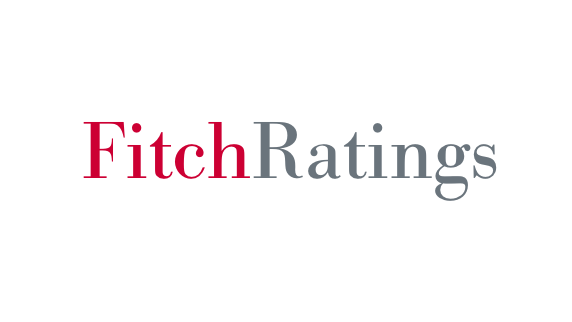General
Sri Lanka post-default rating linked to IMF debt reduction path: Fitch


ECONOMYNEXT – Sri Lanka’s post default ratings would depend on the speed at which the debt is reduced under an International Monetary Fund program, while a ‘restricted default’ label would be taken off after commercial debt is re-structured, Fitch, a rating agency said.
Sri Lanka’s foreign currency rating was lowered to restricted default (RD), after the country defaulted on bilateral and private debt but continued to service multilateral loans.
The RD rating would be removed after a successful “completion of a commercial debt restructuring that we judge to have normalised the relationship with the international financial community,” the rating agency said.
A slower debt reduction path would make it easier to re-structure debt, but it may result in higher debt levels for a longer period, delaying quick upgrades.
“Sri Lanka’s post-default ratings would depend upon our assessment of its credit profile,” the agency said.
“If the key parameters for returning to debt sustainability under the IMF programme allow for a moderate and extended debt reduction process, this could facilitate debt restructuring talks, but may weigh on the sovereign’s post-default credit ratings.”
Sri Lanka is planning to reduce debt and return to ‘debt sustainability’ under an IMF program.
According to data in a debt assurance letter given by India, Sri Lanka plans to reduce the debt to GDP ratio to 95 percent of GDP by 2032 from around 140 percent now and the annual gross financing requirement to around 13 percent of GDP from the current 30 percent.
Sri Lanka has high interest rates and high levels accumulated foreign and local debt after operating a so-called flexible inflation targeting framework with an ad hoc pegged arrangement called a ‘flexible exchange rate’ which triggered serial currency crises and output shocks.
After large volumes of money were printed and taxes were cut to end what economic bureaucrats called a ‘persistent output gap’ the country ran out of reserves and defaulted, leaving the central bank also in debt.
Other countries with similar monetary arrangements including but no tax cuts including Ghana, Zambia and Pakistan, have also defaulted or are near default after they also cut rates amid a post-covid recovery.
The full statement is reproduced below:
Sri Lanka’s Probable IMF Support Deal Positive for Debt Negotiations
Fri 10 Mar, 2023 – 1:56 AM ET
Fitch Ratings-Hong Kong-10 March 2023: Fitch Ratings believes Sri Lanka is likely to secure financing support from the IMF after the fund’s Executive Board set a date of 20 March to review the USD2.9 billion staff-level agreement that the country signed with the IMF in September 2022. IMF funding should improve Sri Lanka’s external liquidity, but the timing of any debt restructuring agreement with official and private creditors remains uncertain.
We view the announcement of a date for the Executive Board review as an indication that the IMF regards the financing assurances it has received from key official creditors as sufficiently credible to move forward. Sri Lanka’s president on 7 March indicated that China had provided its support, following earlier assurances from India and Paris Club official creditors. The president also indicated that Sri Lanka had completed all prior actions required under the IMF programme, although the IMF Board will make its own assessment on this in deciding whether to approve the package.
Board approval of the programme would release IMF funding and should unlock additional financing from multilateral creditors. This would bolster official foreign-exchange reserves, which have already risen 30% from their trough in October 2022. Nonetheless, reserves remain very low, at USD2.2 billion in February, equivalent to around one month of imports.
We expect improved external liquidity to support a broader strengthening of macroeconomic stability. The exchange rate has appreciated since late February 2023. Month-on-month inflation had already moderated over 2H22, but the strengthening of the currency should further restrain price growth if it is sustained.
Nonetheless, potential upsides to Sri Lanka’s economic outlook will remain constrained until its debt restructuring is agreed upon. The prospects for a deal with creditors remain unclear for now. We view recent developments as positive for debt negotiations, partly because they suggest that official creditors’ financing assurances are consistent with the parameters of the IMF’s programme that seeks to return debt to sustainable levels. However, restructuring talks could continue for a long time yet.
The example of Zambia (Restricted Default, or RD), where an IMF support package was approved by the Board in August 2022 but debt restructuring talks are still ongoing, highlights this risk. We believe that even if official creditors are more aligned in Sri Lanka’s case, talks with private-sector creditors could raise further complications.
The issue of whether to include local-currency debt in any restructuring will be one of the factors complicating debt negotiations. We downgraded Sri Lanka’s Long-Term Local-Currency Issuer Default Rating (IDR) to ‘CC’, from ‘CCC’, in December 2022, reflecting our view that a local-currency debt default is probable in light of an untenably high domestic interest payment/revenue ratio, high interest costs, tight domestic financing conditions and rising local-currency debt/GDP in the context of high domestic fiscal financing requirements, which authorities forecast at about 8% of GDP in 2022. The Long-Term Local-Currency IDR would be further downgraded if the government announces plans to restructure or defaults on its local-currency debt.
Fitch rates Sri Lanka’s Long-Term Foreign-Currency IDR at ‘RD’. We may move the IDR out of ‘RD’ upon the sovereign’s completion of a commercial debt restructuring that we judge to have normalised the relationship with the international financial community. Sri Lanka’s post-default ratings would depend upon our assessment of its credit profile. If the key parameters for returning to debt sustainability under the IMF programme allow for a moderate and extended debt reduction process, this could facilitate debt restructuring talks, but may weigh on the sovereign’s post-default credit ratings.








